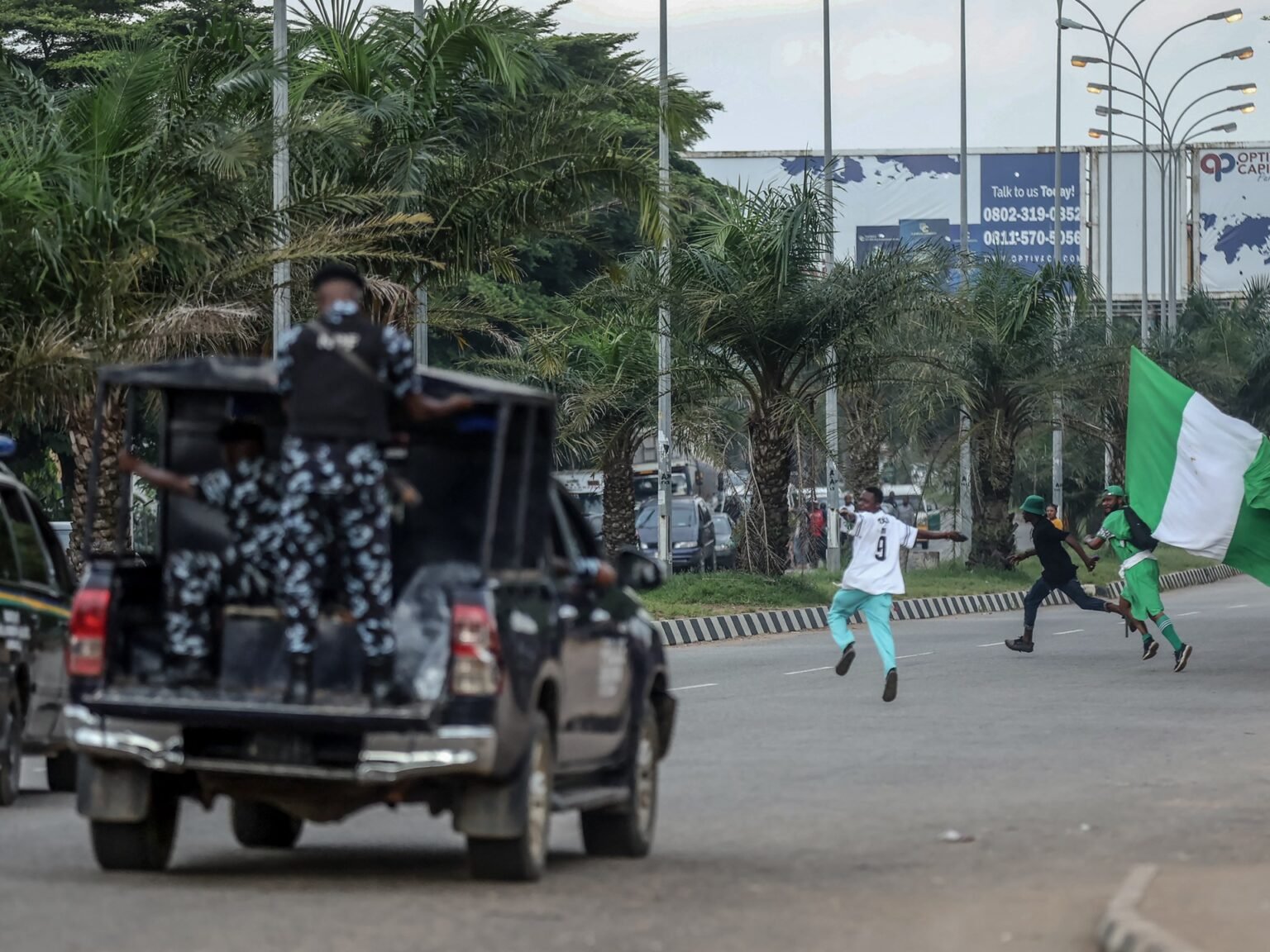Protests have erupted in Nigeria for the second time in two months as citizens express their frustration with the economic challenges facing the country. Demonstrators in Abuja chanted slogans demanding an end to hunger and bad governance, with police responding by firing tear gas canisters. The Take it Back movement, a leading advocacy organization, highlighted the government’s disconnect from the struggles of ordinary people as a driving force behind the protests. The timing of the demonstrations coincided with Nigeria’s Independence Day celebrations, but many citizens see little reason to celebrate amidst widespread hardship.
The protests, tagged #FearlessInOctober, called for an end to hunger by rejecting fiscal measures recommended by the World Bank that have resulted in higher fuel prices. Demands also included reducing electricity prices and releasing protesters arrested during past demonstrations. Despite a heavy police presence and dispersal tactics used in Abuja, larger numbers gathered in Lagos to voice their grievances. In Ilorin, fear and intimidation kept many potential demonstrators away, underscoring the challenges faced by ordinary Nigerians in speaking out against the government.
Rising food prices have had a significant impact on the population, with staples like garri and rice becoming unaffordable for many. Inflation, mismanagement, and insecurity have contributed to Nigeria’s economy facing its deepest recession in four decades. President Bola Ahmed Tinubu implemented World Bank-recommended fiscal measures upon taking office, which exacerbated the economic hardships faced by citizens. The removal of fuel subsidies and the devaluation of the naira have further strained the country’s economy, leading to increased poverty and food insecurity.
Critics argue that the government’s response to the economic crisis lacks empathy and fails to address the root causes of the issues. While attempts to increase wages and provide cash transfers have been made, they are insufficient to alleviate the hardships faced by a significant portion of the population. The Central Bank of Nigeria’s efforts to control inflation have yielded limited results, highlighting the need for comprehensive policies that address the underlying challenges. The government’s lavish spending on projects like luxury renovations and private jets have further fueled resentment among the population.
Rights abuses under President Tinubu’s administration have been a cause for concern, with security forces using excessive force to quell protests and silence dissent. The crackdown on demonstrators during previous protests led to multiple deaths, injuries, and arrests, with some individuals facing severe charges such as treason. Human rights activists have criticized the government’s heavy-handed approach to dissent, highlighting a pattern of authoritarian behavior that undermines democratic values. Despite the risks, protesters remain determined to voice their demands for change and hold the government accountable for its actions.
As protesters vow to continue their demonstrations until their demands are met, the government faces increasing pressure to address the economic challenges facing Nigeria. Calls for President Tinubu to abandon harmful policies or resign reflect the growing discontent among citizens who have been adversely affected by the country’s economic woes. The ongoing protests serve as a reminder of the resilience and determination of the Nigerian people to fight for a better future and hold their leaders accountable.












